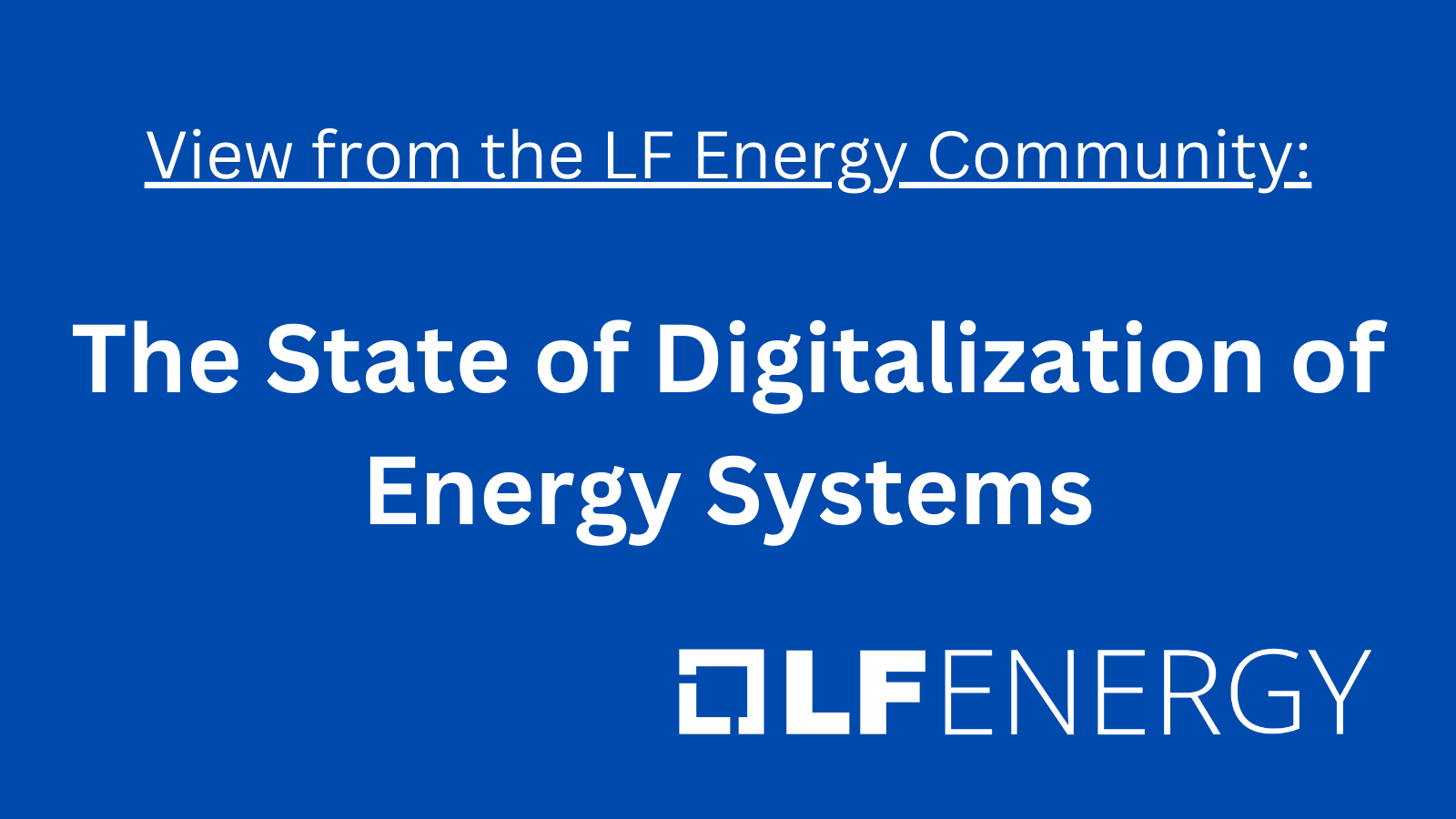View from the Community: The State of Digitalization of Energy Systems
This is the first in a series of articles exploring the technological challenges and solutions to achieving the goals of the energy transition. Drawing on the knowledge of experts from utilities, vendors, technology companies, and researchers in the Linux Foundation Energy community, this series will explore the current state of technological evolution supporting the energy transition, as well as the most important trends, biggest challenges, and how to address them.
We start in this article by assessing the current state of digitalization of energy systems. The recent Energy Transition Readiness Study from LF Energy and LF Research found that 93% of utilities surveyed report having a digitalization plan in place, and 76% have already begun implementing it. This does not however express exactly how much more needs to be done in order to complete the digital transformation necessary for the energy transition.
In asking LF Energy community members about the state of digitalization of energy systems, some initial comments included, “slow”, “lagging”, and “nascent”. According to Dr. Antonello Monti of RWTH Aachen University, who also chairs the LF Energy Technical Advisory Council, “It is very different country by country and it is also different within the same country particularly at the distribution level. There is, in any case, still a lot to do.” Several others echo this point:
- Martijn Govers of Alliander, points out that there are, “many initiatives, the first products are live, but there is lots of work left to do.”
- Boris Dolley of RTE states, “It’s a work in progress. Initiated before 2000 for data exchanges between regulated players, there is still a long way to go to connect the solutions of historic and new players.”
- Alliander’s Maarten Mulder says, “In terms of software, much is already available. However, there is still a lack of intensive collaboration for acceleration and having a blueprint for the entire ecosystem.”
- According to Tamás Russ of SprintEins, “It is at the beginning with huge potential for optimization.”
There is some cause for optimism though. Multiple LF Energy community members pointed out progress that is being made, despite challenges remaining:
- Nicolas Höning of Seita Energy Flexibility says, “Much more data is being added, but it is still siloed with little automation for decision making or integration for increased awareness. Several software automation pilots are happening, but they are also usually siloed, for example only charging matched to local solar power.”
- Mike Heinen of AspenTech notes, “Digital transformation in the energy sector is an endeavor with great potential. From utilities to consumers, wider access to simple, effective tools and data to study, monitor, control, and optimize electrical energy is a pathway to a green and energy rich future. The energy sector has for decades leveraged the latest digital innovations available to accomplish this. In the current era of open source, the ‘information age’, AI has the potential for innovation to digitally transform the energy sector has never had higher potential than now.”
- Robert de Leeuw of PIONIX comments, “The transformation is happening. On all levels of the grid slowly equipment is getting upgraded for better monitoring and control. EV charging stations for example are becoming smarter and smarter, and almost all new projects have the ability to control the amount of power provided to EVs.”
Jonas van den Bogaard of Alliander sums up the opportunity, though he includes a note of caution for both developers and end users to keep in mind: “Digital technologies have unimaginably transformed our lives. Digitization is playing a fundamental, facilitating role in the energy transition towards a sustainable and CO2-neutral energy system. While its role will grow in the coming years, it also brings forth concerns about ethics, digital inclusion, and cybersecurity.”
Overall, our experts agree that digitalization not only has huge potential for the energy sector, but is essential to completing the energy transition and decarbonizing our economies. However, they also agree that this transformation is happening too slowly. Our next article in this series will explore the specific challenges that are holding the industry back from a more rapid transition, while future articles will dig into the technology trends most likely to make a difference in the coming years, and the part open source has to play.
